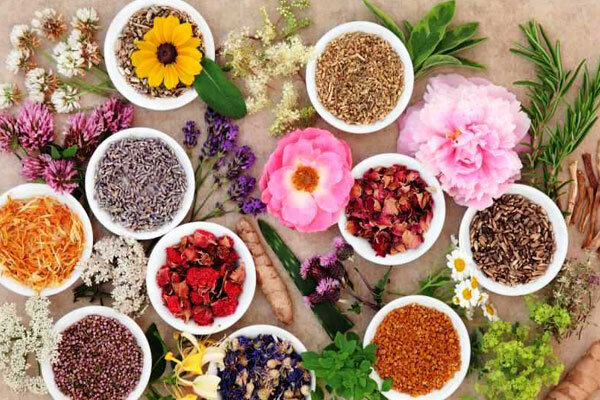Traditional medicine center inaugurated for COVID-19 patients

TEHRAN – A center offering traditional medicine services to coronavirus patients was inaugurated in Tehran’s Shahid Beheshti University of Medical Sciences on Sunday.
Alireza Zali, head of coronavirus control working group in Tehran, said that self-care is not self-medication, so that traditional Iranian medicine, which is the most important document in the field of health, should come into consideration, IRIB reported.
“For about 15 years, medical universities have provided an academic background for traditional medicine, and we are proud that today the leading universities of traditional medicine and sciences in the scientific ranking are among the best universities in the country,” he highlighted.
In the first phase, 100 traditional medicine physicians have been organized for face-to-face and virtual visits, and 200 experts have acquired the necessary skills in intensive courses to prepare for telephone consultations, he explained.
Mostafa Ghanei, head of the scientific committee of the National Headquarters for Coronavirus Control in August said that there are currently 30 projects underway nationwide in the field of traditional medicine, herbal medicine, and supplements to fight the coronavirus pandemic.
There are many herbal remedies in the country to relieve COVID-19, but have so far been used in populations of less than 100 people; therefore, announcing their effectiveness still needs time and testing to be confirmed, he explained.
Iranian traditional medicine against COVID-19
Alireza Abbassian the health ministry’s director of the traditional medicine department, said in March that Iranian traditional medicine can play an effective role in strengthening the immune system to resist the novel coronavirus infection.
Referring to the importance of health care, he explained that medical fasting, reducing calories consumed in a day by 20 percent less than usual, can help strengthen the immune system and reduce inflammation, this method can improve the body's function against the disease.
“Pickles should be restricted and it is essential to avoid spicy food such as red pepper, mustard, and salts in addition to salty nuts or cucumbers,” he said, adding, it is also advisable to limit the consumption of yogurt, tomatoes, bananas and thick food.
On the other hand, the consumption of juicy stews along with fresh vegetables, prune, barberry, zucchini, green bean, okra, and pumpkin are also helpful to boost the immune system, he noted.
He went on to conclude that thyme, cinnamon, fennel flower, turmeric, Stachys lavandulifolia, viper's-buglosses, chamomile, saffron, rosemary, and cloves are also beneficial to the body.
COVID-19 toll at a record high
In a press briefing on Sunday, Health Ministry spokesperson Sima-Sadat Lari confirmed 9,236 new cases of COVID-19 infection, raising the total number of infections to 682,486. She added that 520,329 patients have so far recovered, but 5,523 still remain in critical conditions of the disease.
During the past 24 hours, coronavirus daily deaths and new cases hit the record high, as 459 patients have lost their lives, bringing the total number of deaths to 38,291, she added.
Lari noted that so far 5,224,252 COVID-19 tests have been conducted across the country.
She said the high-risk “red” zones include provinces of Tehran, Isfahan, Qom, East Azarbaijan, South Khorasan, Semnan, Qazvin, Lorestan, Ardebil, Khuzestan, Kermanshah, Kohgiluyeh-Boyerahmad, Gilan, Bushehr, Zanjan, Ilam, Khorasan Razavi, Mazandaran, Chaharmahal-Bakhtiari, Alborz, West Azarbaijan, Markazi, Kerman, North Khorasan, Hamedan, Yazd, and Kordestan.
The provinces of Hormozgan, Fars, and Golestan and Sistan-Baluchestan are also on alert.
FB/MG

Leave a Comment